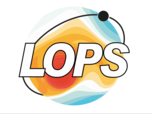Department of Oceanography and Ecosystem Dynamics
The Department of Oceanography and Ecosystem Dynamics (Océanographie et Dynamiques des Ecosystèmes — ODE) focuses its activities on observation, modelling and understanding the physical ocean at various scales, as well as coastal pelagic and benthic ecosystems.
Scope and focus
Observing and comprehending the dynamics of the marine environment is a major research topic at IFREMER. It addresses various societal issues:
- Assessment of the influence of climate change on the ocean and the role it plays on the climate;
- Understanding ocean-atmosphere interactions with a view to improve oceanographic, meteorological and climate forecasts;
- Know how to assess the ecological state of coastal ecosystems by determining how to distinguish natural variability from the impact of human activities.
Research
The research conducted by the Institute focuses on the comprehension of the physical, biogeochemical or biological processes that can be studied using novel ocean observation and modelling techniques.
In physical oceanography, these studies focus on the dynamics of the global ocean, from the Atlantic Ocean to the Mediterranean Sea in particular, on the oceanic mixed layer and its interactions with the atmosphere and ice.
In coastal science, research also focuses on characterising the impact of human activities on the marine environment: chemical contamination, eutrophication, degradation or restoration of benthic habitats, influence of various inputs on the composition of plankton, particularly toxic phytoplankton, modifications of sedimentary dynamics, etc.
Its studies contribute to the characterisation and the study of benthic biodiversity and pelagic biodiversity, particularly phytoplankton, through a dedicated observation network (REPHY).
Its studies also contribute to sustainable aquaculture through an ecosystem approach that relies on the study of equilibria in the food chain as well as potential use conflicts among the various human activities on the coast.
Methods
ODE ensures the collection of data from in situ instruments, coastal samples and satellites. It designs and implements data processing systems, data analysis and data dissemination. It develops numerical modelling tools to simulate the functioning of the physical ocean, marine ecosystems and exchanges at interfaces (sea-land, ocean-atmosphere).
The Department contributes to regulatory environmental and water quality monitoring in coastal waters through observation and monitoring networks that it designs, operates or coordinates as mandated by public authorities. The continuous improvement of monitoring networks, and the utilisation of data obtained to improve knowledge are also important undertakings.

